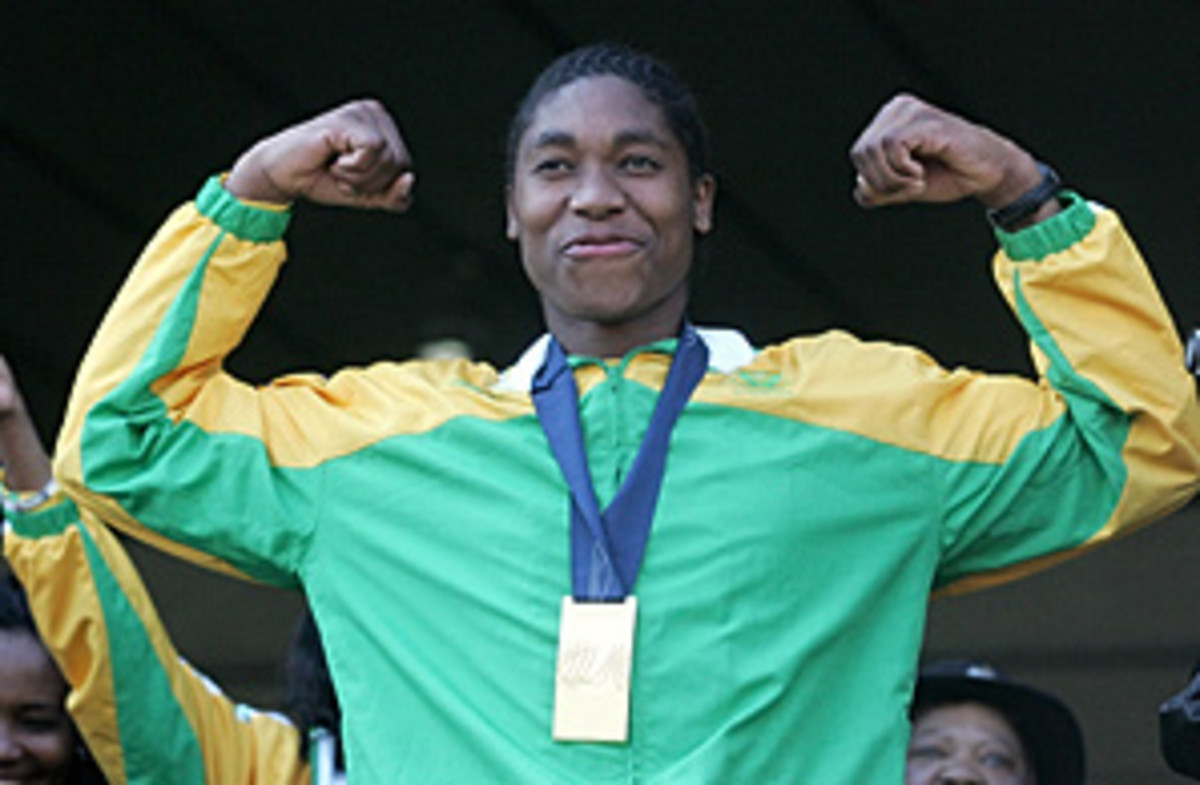
Some things we need to keep in mind about Caster Semenya
1. What do you think of the Australian newspaper report? Is there any indication that it's accurate?
Frankly, I think we should wait and see until the full report comes out. I think it's kind of a shame that things have come out the way they have for her. With any situation this complex and sensitive, it's tough to draw conclusions without all the information.
2. Previous reports said test results would be available this or next week. Now they're saying November. What going on with the delay?
That's a good question. It's hard to tell what they're waiting for. It's a complicated process that involves multiple doctors and a battery of tests. Like any medical procedure, you'd assume there are going to be a lot of follow-up tests with multiple doctors, and they have to be sure of what they're looking at. There could also be specific issues they want to delve into more deeply. In any situation this complex, they probably want to talk to Semenya at length about the results before they release them to the world. For all we know, there could be a health problem that they want to deal with discreetly, but right now it's all speculation.
3. IOC president Jacques Rogge said this case needed to be handled with more discretion. What are your thoughts on the IAAF's handling of it so far?
I think most people seem to agree that, from start to finish, it's been an exercise in indiscretion. But the IAAF was put in a tough spot when some of Semenya's rivals started slinging allegations while the world was watching. In normal cases, even small medical matters are considered private. In this case, we have a teenager thrust into the spotlight in a really complicated situation. It's hard to see how this wouldn't be traumatic for anyone. In most cases, the IAAF tries to handle these things before they reach the world stage. I think this one might have been more difficult because of how quickly Semenya emerged. If the South African athletics federation and the IAAF had their ducks in a row quickly, they might have been able to avoid this controversy.
4. How did she emerge so quickly?
We're not really sure, but she was a decent runner last year. She ran some good times, but it was basically at the African Junior Championships in July, where she dropped four seconds from her time and went from being a good junior runner to competing for a world championship. So, perhaps there wasn't time to do complex testing or figure the matter out entirely. Not much insight into her recent training has come out, so it's hard to tell how that impacted her emergence.
5. If the reports are true, what does it mean for her running career?
It's pretty hard to say. If there are health implications, I think they would be the first priority. Do they need to do something to protect her health? There are people with both gender's sex organs who can be perfectly healthy, but Semenya also could have medical problems. If that's the case, you would have to wait to see how they need to be treated. In terms of her eligibility, the IAAF doesn't have hard and fast criteria in place that automatically affect her world title.
The reason the IAAF and IOC stopped doing sex verification testing is because they couldn't establish fair and accurate criteria. They will have to come up with arbitrary standards, and there seems to be no solution that would be fair to everybody. The medical community has said that not all humans fit perfectly into our stereotypical notions of male and female. It's a difficult situation to say the least.
6. What about the reports of a high level of testosterone in her body? Does that mean she's doping?
There's a difference between how much testosterone you have in your body and what they test for in doping. In track, they test your ratio of testosterone to a different hormone called epitestosterone. A normal person has about a 1:1 ratio, and you can go up to 4:1 before failing a test. So it's not the amount of testosterone, it's the hormone ratio. As a doctor told me previously, if you tested weight-bearing athletes, they would probably have high levels of testosterone, too. Plus, it's not just a question of how much testosterone you have, but how much your body can use. Some people who have sexually ambiguous traits have high testosterone but their body might not be able to use it. There are just too many unanswered questions to draw conclusions.
7. Is it possible that Semenya's performance is entirely natural?
There's something different about world champions. There's a Kenyan woman, Pamela Jelimo, who is 19 -- about Semenya's age (18) -- but a second-and-a-half faster in the same event (800 meters), and no one questions whether she could run this fast naturally. It's not unheard of for a woman to be that good so young. Do I believe the Australian newspaper report? It might be true, but there's no context for it. We need context, and trying to put this together through random reports that have leaked out isn't good for anyone.
Semenya withdraws from event amid outrage firestorm
Semenya's competition status remains murky in wake of report
Report: Semenya has sex organs of both genders
TIME.com:South Africa ponders lawsuit in Semenya case
EPSTEIN:No real reason to disqualify Semenya




